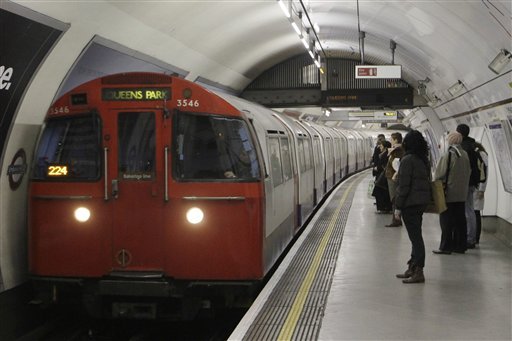LONDON — On one of my first days in London, I passed through a tube station with a blank expression. I carry this expression everywhere in New York City because I do not want to be drawn into conversation with a stranger. My assumption when coming to London was that it might be a different country, but surely the way I walked and interacted would fit in. Suddenly, I roughly bumped into an older man. He looked scruffy and suspicious, but before I had the chance to walk away, he caught me and began to apologize profusely. My facade broke, and I immediately became flustered. Do I apologize, too? Do I thank him? Should I tell him to go away? I was not sure how to react, and uttered some senseless noise before he turned and was on his way. This was not an experience New York had prepared me to handle.
Of all the places to study abroad, London is one of the most similar to New York. I thought I knew what to expect studying in England, and, in a lot of ways, I did. My introduction to the iconic British symbols, like red double-decker buses and elaborate townhouses, was almost instantaneous. Within three days of arriving, I had actually driven on the left side of the road, mastered the “tube” and traveled the city with ease. Considering the amount of culture shock that the program warned U.S. students of, I wondered as to why I was so comfortable with the city. I had absolutely no problem with the idea of traveling alone and did not balk at the idea of getting lost.
Upon further exploration, I found that the places in Central London that I had visited so far are strikingly similar to those of the boroughs of New York. For example, Leicester Square closely resembles New York’s China Town, and Piccadilly Circus is alarmingly like a smaller version of Times Square. However, this was a completely new country for me. There had to be differences, otherwise I believe my studying “abroad” would be a bit of a cop-out. It turns out that the main differences between London and New York City lie not in the physical aspects, but in the social ones.
In the first week of my stay in the city, I heard the phrase “two nations separated by a common language” twice. In fact, once was by an American and the other time by a Brit. This phrase can be attributed to the difference in accents. However, I mostly associate it with how polite the people are, as well as differences in word choice. I had to adjust to the type of manners expressed by the residents of London. Eventually, it felt rude to just ignore a person on the street, or to even walk by a person handing out flyers without at least a “no, thank you.” Actually, I say “no, thank you” to those with flyers outside of the tube station all the time, and often their immediate response is “you’re welcome!” They don’t even give me anything! The phrase is just said for the sake of being polite. As for the differences in word choice, I still have not adjusted to calling the subway the “tube,” and calling chips “crisps” is never going to happen.
It’s true that London reminds me of New York in many ways. It looks like home, but it still has that new-city feeling. The different social aspects between the two cities really emphasize the differences in the two cities. The physical differences between the cities are small, really. It’s the common language that ultimately makes them so different.





